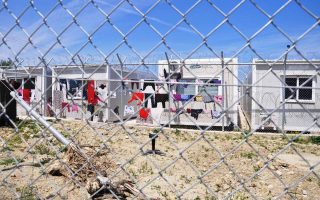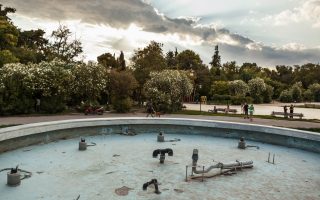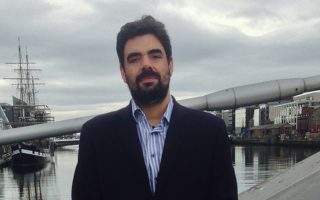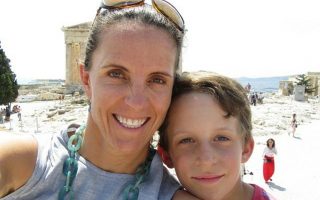Military doctors help out at Athens’s understaffed Evangelismos Hospital
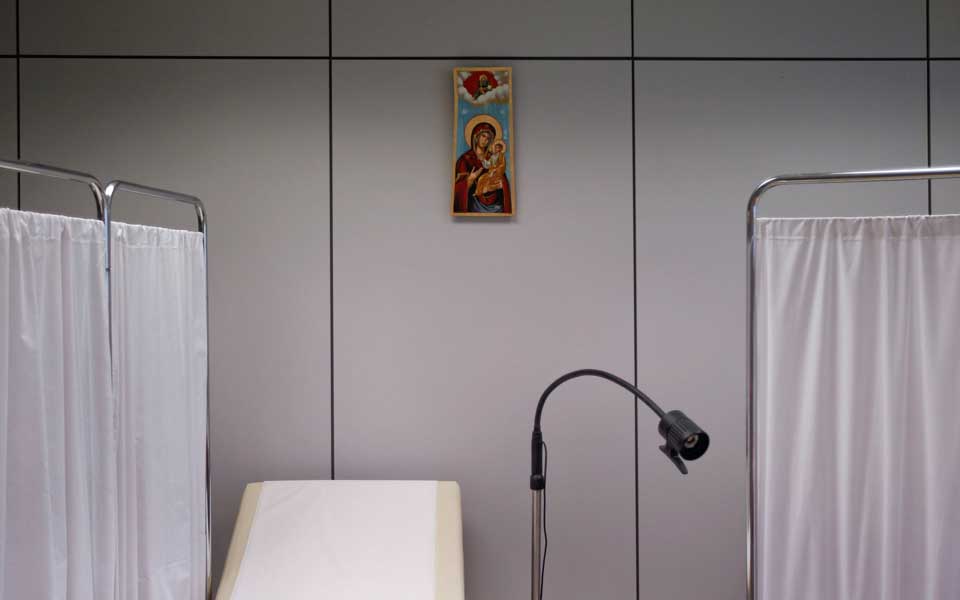
When his night shift comes to a close at the 251 Air Force General Hospital in Athens, thoracic surgeon Konstantinos Soultanis makes himself available for the heart surgery clinic at Evangelismos, the country’s biggest public hospital. “We help out whenever it is asked of us,” he says. In an attempt to help cover the Greek National Healthcare System’s gaps, at least four other military doctors have like Soultanis been volunteering their services to the public hospital for years now.
Soultanis completed his practical training at Evangelismos in 2013, but, just like other military medical practitioners, he has continued to help with surgeries at the hospital monthly or weekly, depending on how much assistance his colleagues are in need of. Regardless, the demands of the heart surgery clinic at Evangelismos are still very high. Moreover, it is in this hospital that over 50 percent of the National Healthcare Service’s heart surgeries are carried out.
Meanwhile, the number of incidents calling for Soultanis’s assistance have increased in recent years. Due to Greece’s economic crisis, there has been a significant migration of patients from the private to the public healthcare sector. Last year, the number of cardiovascular operations in public hospitals increased by 29 percent compared to 2009, while private hospitals experienced the reverse effect, as their heart surgeries decreased by 51 percent during the same period.
This development, however, has been accompanied by an unprecedented emigration of Greek scientists. As explained by the director of Evangelismos’s Department of Thoracic and Cardiovascular Surgery, Michalis Argyriou, 21 heart surgeons today are providing their services to the four hospitals under the National Healthcare Service that have cardiothoracic surgery clinics, while more than 50 of their compatriot counterparts between the ages of 35 and 55 work for the United Kingdom’s National Health Service. This huge flight of human capital, along with the hiring freeze in full-time positions for doctors, has created irreplaceable voids in the Greek National Healthcare Service. Today, at Evangelismos’s cardiac surgery clinic, where over 900 operations are performed annually, there are four vacant positions for specialized doctors, and nine for interns.
“There is a big flight trend among young doctors. They feel insecure as to whether they will find employment. Consequently, they prefer to leave for another country, where not only will they find a salary-paying position, but one that will give them the opportunity to evolve professionally,” explains Soultanis. Through his own experience in the field, of the 11 doctors he has worked with, eight are now applying their skills abroad, mainly in countries such as Germany and the UK. The rest remained in Greece because they had the opportunity to immediately begin practicing in the military.
A few months ago, Argyriou and a few of his colleagues wrote to the Ministry of Health in an effort to force it to deal with the shortage of medical practitioners that the cardiothoracic and vascular surgery clinic is suffering from. “Young doctors have stopped coming to the clinic for specialization, supplementary doctors are not being hired, while vacant positions are not being announced,” the doctors said in their letter to the ministry. Moreover, they propose the creation of a special institutional framework, in cooperation with the Ministry of Defense, that will allocate cardiothoracic surgeons from military hospitals to the National Healthcare Service. “This is a solution that can immediately be put into practice without further burdening the hospital with salary costs,” the surgeons added.
A joint ministerial decision in 2011 enabled specialized military doctors serving in the medical divisions of expedition units outside of Athens and Thessaloniki to provide their services to cover the needs of hospitals under the National Healthcare Service, university clinics, as well as units or laboratories. That decision does not, however, define a similar framework for the country’s two largest cities.
“Perhaps they did not imagine that someday such a necessity would exist in Athens as well,” says Soultanis. His cooperation with the other doctors in Evangelismos is based on the friendships that developed when Soultanis was completing his training at the public hospital. “There are mutual benefits. On the one hand I am improving my surgical skills, while on the other I am assisting the National Healthcare Service’s doctors who trained me,” he explains. Another military doctor who assists at Evangelismos three days a week after finishing his night shifts at the 401 General Military Hospital adds, “This phenomenon exists out of good will, and the strong bonds that we’ve developed with our former supervisors.”

